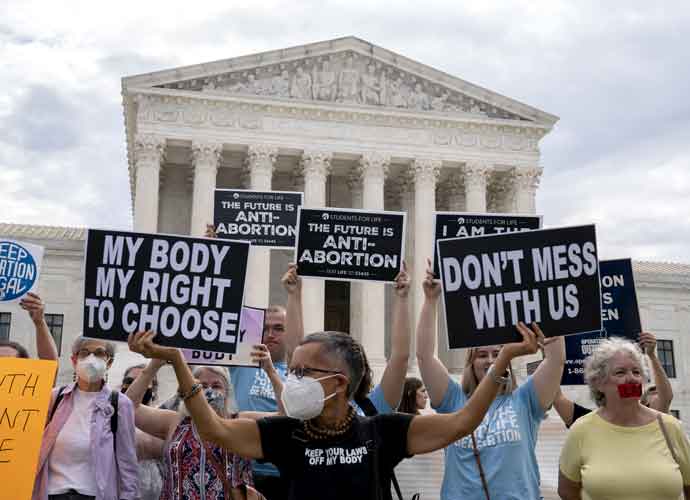Supreme Court Appears Primed To Overturn Roe V. Wade
The United States Supreme Court, with its 6-3 conservative majority, appears poised to overturn Roe v. Wade and Planned Parenthood v. Casey after hearing oral arguments on Wednesday in a case that could strip Americans of their reproductive freedom and that would have enormous implications for broader civil rights.
This is in spite of the fact that sixty percent of Americans support the right to abortion, according to a September ABC News/Washington Post poll.
Mississippi Solicitor General Scott Stewart argued before the Court’s nine justices that his state’s 15-week abortion ban – the Gestational Age Act of 2018 – should be upheld and that access to the procedure is not a constitutional right, challenging nearly 50 years of legal precedent.
The law does not provide exceptions for instances of rape or incest. Only “in medical emergencies or for severe fetal abnormality” may abortions be performed. Doctors who violate the statute can lose their licenses and be subject to penalties and fines.
Subscribe to our free weekly newsletter!
A week of political news in your in-box.
We find the news you need to know, so you don't have to.
“Roe vs. Wade and Planned Parenthood versus Casey haunt our country,” Stewart said. “They have no basis in the Constitution. They have no home in our history or traditions. They’ve damaged the democratic process. They poison the law. They’ve choked off compromise. For 50 years they’ve kept this court at the center of a political battle that it can never resolve and 50 years on, they stand alone. Nowhere else does this court recognize a right to end a human life.”
United States Solicitor General Elizabeth Prelogar countered that “for a half-century, this Court has correctly recognized that the Constitution protects a woman’s fundamental right to decide whether to end a pregnancy before viability. That guarantee, that the state cannot force a woman to carry a pregnancy to term and give birth, has engendered substantial individual and societal reliance. The real-world effects of overruling Roe and Casey would be severe and swift.”
Prelogar added that “the Court has never revoked a right that is so fundamental to so many Americans and so central to their ability to participate fully and equally in society.”
None of the Court’s six right-wing jurists – including Chief Justice John Roberts, the more moderate of the bunch whom former President George W. Bush added to the bench – indicated that they were inclined to adhere to the so-called fetal viability rule, which says that states may not prohibit abortions before 22-24 weeks of pregnancy.
Associate Justice Brett Kavanaugh, who was appointed by former President Donald Trump, suggested that the Court may kick the issue back to the states.
Given the more than 100 abortion bans that have been proposed or enacted by Republicans in 2021 alone, this offers little comfort to people who fear losing their reproductive autonomy.
The three liberal justices dissented, opining that the Court’s legitimacy – along with the fact that it has never taken away a constitutional right – must be considered in the final decision, which is expected next year.
Associate Justice Sonia Sotomayor, an appointee of former President Barack Obama, noted that “15 justices over 50 years” have upheld Roe and that the Court would not survive the “stench” that would permeate throughout the population if Roe is overturned. She also admonished Stewart and the State of Mississippi for tacitly admitting that they petitioned the Court “because we have new justices.”
Notably, the impact of how the Court rules following Wednesday’s hearing extends beyond abortion. If the Court opts to rescind the right to access an abortion, right-wing activists and Republican lawmakers would be emboldened to dispute the rights to same-sex marriage, health care, voting and other basic civil liberties.
Get the most-revealing celebrity conversations with the uInterview podcast!






Leave a comment